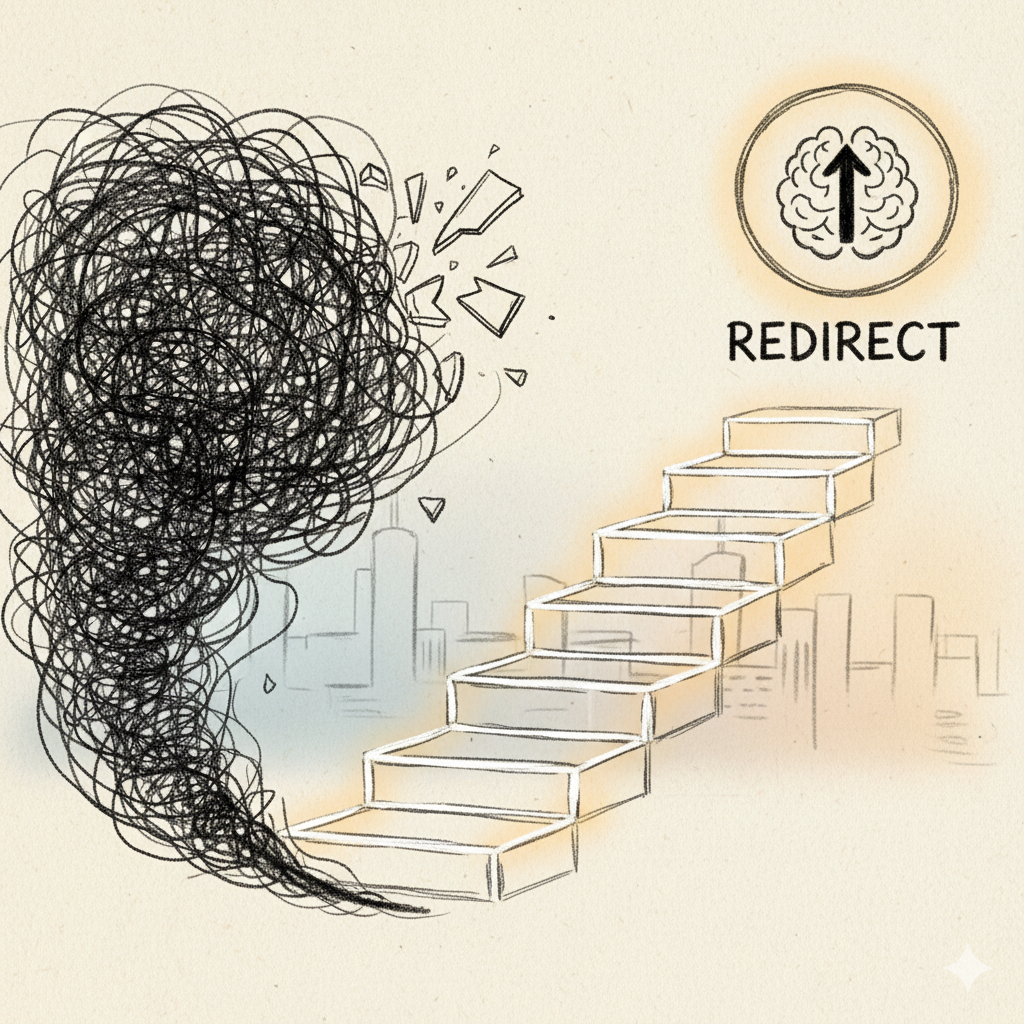Imposter Syndrome: Your Uncomfortable Motivator
Have you ever landed a new role, started a challenging project, or stepped into a completely unfamiliar domain, only to be immediately followed by a little voice whispering: "You don't belong here," or "You're going to be found out"?
That nagging feeling has a name: Imposter Syndrome.
It's often framed as a flaw, a sign of weakness, or something to be eliminated. But what if we've been looking at it all wrong? What if this discomfort isn't a glitch in the system, but a fundamental feature of growth?
It's time to reframe Imposter Syndrome—not as a failure, but as a fascinating and powerful motivator.
The Science of Discomfort: Learning is Supposed to Feel Awkward
To understand Imposter Syndrome, we need to understand how the human brain processes learning.
When you're trying to master a new skill, your brain is literally reorganizing itself. This process, known as neuroplasticity, is anything but smooth.
Think about the last time you truly learned something new: a musical instrument, a complex coding language, or a demanding physical activity.
Conscious Incompetence: At first, you know just enough to realize how much you don't know. Your actions feel slow, clumsy, and painfully deliberate. This is the stage where you are operating outside of your established comfort zone.
The "Valley of Despair": Research in cognitive psychology and skill acquisition confirms that the steepest part of the learning curve is often accompanied by the greatest frustration. As you acquire new knowledge, you also become aware of the vastness of the subject matter. You start comparing your novice abilities to the experts, and the gap feels enormous.
This is the crucial realization: The feeling of discomfort, the perceived lack of competence, and the anxiety about failure are all natural, unavoidable byproducts of genuine learning and expansion.
How This Connects with Imposter Syndrome
If we accept that stepping into new arenas is inherently uncomfortable, then it’s little surprise that feelings of being an imposter often show up at those moments.
The High-Achiever's Companion
Research on the imposter phenomenon shows:
It’s prevalent in high-achieving people. You don't question your competence doing simple tasks; you question it when the stakes are high and the challenge is new.
It is positively correlated with achievement motivation. A 2024 study found individuals with higher achievement motivation were more likely to experience imposter feelings. The more you care about succeeding, the more you fear falling short.
A Hidden Advantage
And yet, research is shifting: the experience isn’t always purely negative. For instance, a study by the Wharton IDEAS Lab found that people with imposter thoughts also showed better interpersonal performance (listening, asking questions)—perhaps because the self-doubt spurred them to be more careful, more attuned, and better collaborators.
In other words: when you’re doing something new enough that you’re unsure of yourself, you may feel like an imposter. But that doesn’t mean you are fraudulent—it might mean you are exactly where you need to be: learning, growing.
The A-Ha Moment: Imposter Syndrome as a Growth Spurt
If the discomfort of learning is just your brain making new connections, then maybe that uncomfortable "Imposter" feeling is simply your psyche's reaction to being stretched.
Imposter Syndrome, in this light, is not a sign that you are a fraud; it's a sign that you are in a new territory and you care deeply about doing well.
You don't feel like an imposter when you're doing the laundry or making a sandwich—activities you've mastered. You feel it when the stakes are high, the challenge is new, and you've been given a level of responsibility that requires you to step up.
The Equation:
Imposter Syndrome ≈ Discomfort of Learning + High Standards
Embrace, Redirect, Empower: How to Harness the Feeling
The key is not to defeat Imposter Syndrome, but to change your relationship with it. It's not about the feeling itself; it's about how you choose to react.
1. Embrace It: Acknowledge the Signal
Instead of internalizing the thought "I am a fraud," try changing the narrative to: "This feeling is uncomfortable, which means I am challenging myself and growing."
Acknowledge: When the feeling hits, simply say to yourself, "Hello, Imposter Syndrome. Thanks for the feedback. I know you're here because I'm doing something hard."
Normalize: Remind yourself that 70% of high-achievers experience this. It's a club for people who are setting ambitious goals.
2. Redirect It: Convert Anxiety into Action
Imposter Syndrome often manifests as excessive perfectionism, procrastination, or burnout. Redirect that energy.
3. Empower Yourself: Let It Drive You
Ultimately, Imposter Syndrome is a powerful reminder that you are a work in progress. It gives you a choice: to shrink back into your comfort zone, or to use that uneasy energy to propel you forward.
Let the anxiety about not knowing enough become the fuel for your next learning session. Let the fear of failure drive the quality of your output.
Your Imposter Syndrome is simply the internal odometer reading that you are heading into unexplored territory. Don't slam on the brakes—lean into the turn.
What uncomfortable challenge are you currently facing that is making you feel like an imposter?


